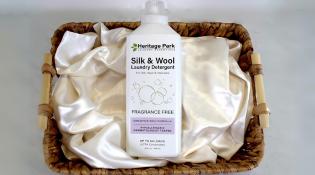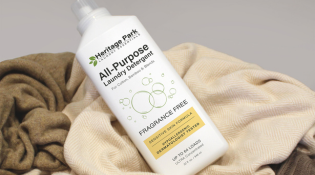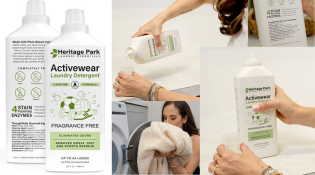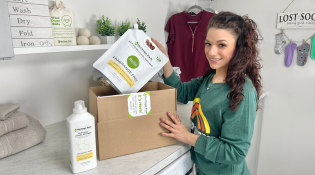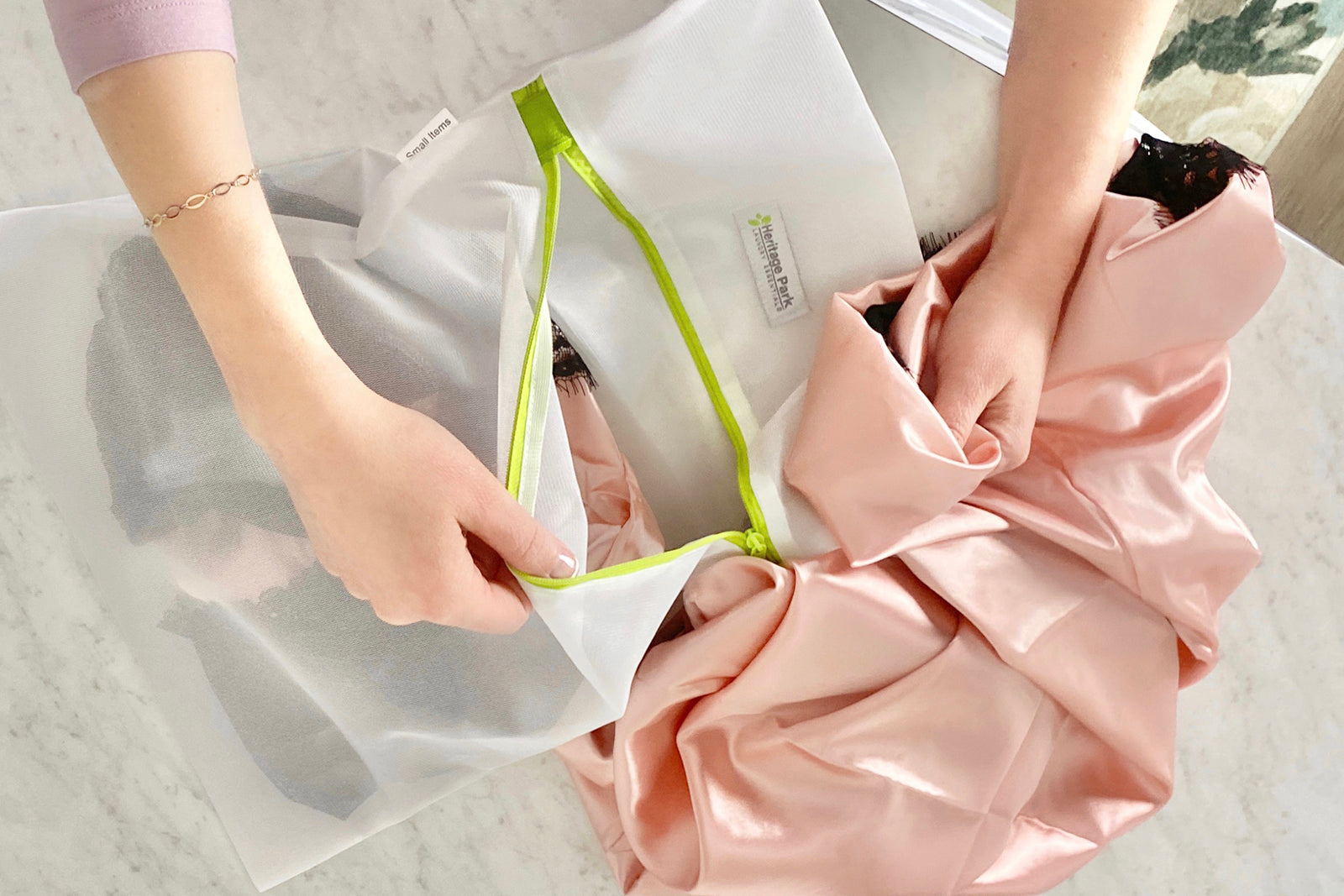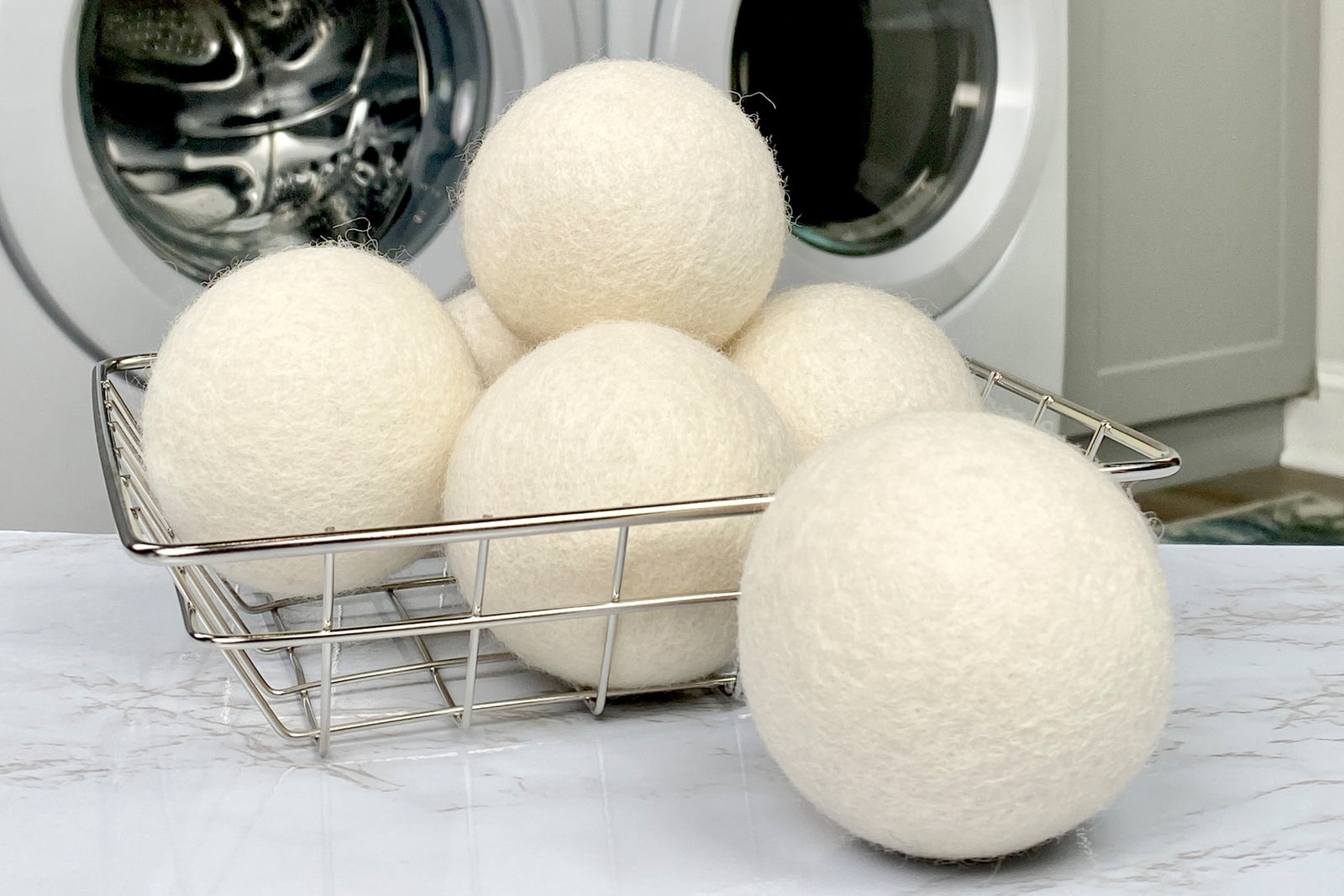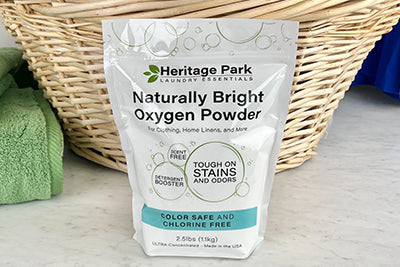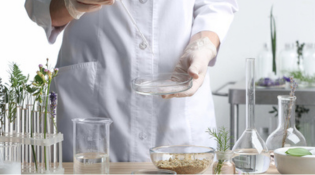This article explains how yellow oxidation stains happen and offers useful information and tips for preventing and removing these "stealth stains."
Inside this Article:
Here at Heritage Park Laundry Essentials, we understand not everyone loves laundry the way we do. And that’s why we’re always working hard to make your laundry life easier, especially the time-consuming and tricky details like stain removal. Today we’re tackling one of the more frustrating families of stains: oxidation stains. These can wreak havoc on clothes and linen, leaving unsightly marks and blotches (especially on white clothing) that are tough to remove. Read on to learn what oxidation stains are, what causes them, and how best to how best to prevent and treat them.
Understanding Oxidation: A "Stealth Stain"
When you spill a glass of red wine or drip ketchup from your burger down your white shirt, you definitely know it! Oxidation stains are different; they sneak up weeks, months, and even years later as discolored yellow stains or brown stains, typically on light or white clothes and home linen. Oxidation gets its name from the chemical reaction that causes it: namely, an interaction with oxygen.
What Causes Yellow Oxidation Stains?
Oxidation stains are primarily caused by the exposure of fabric (and whatever is lingering or built up on it) to the oxygen in air. Certain compounds are particularly vulnerable to oxidation:
- Leftover stains (ex: food, sweat, dirt, spit up on baby clothes): Even if it looks like the stain is gone, there may still be residue that over time will interact with air and yellow fabric. This is especially true with protein-based stains like sweat, which is filled with salt and organic compounds that are highly reactive (think of sweat stains on a "clean" white t-shirt).
- Metallic residue, aka rust: Metal zippers, buttons, or hangers left in contact with wet fabric can accelerate oxidation, leading to rust stains on fabrics
- Cleaning agents like bleach: This may seem counterintuitive, but cleaning products with bleach can break down the fibers of fabric, especially man-made fabrics like polyester, causing it to yellow.
- Hard Water: The minerals in hard water can react with air and cause oxidation.Read more about hard water here.
- Deodorant, lotions, cosmetics: Again, these products contain compounds that settle into fabric and react with air, even if a garment seems "clean."
How to Prevent Oxidation Stains
You won’t be surprised to learn that the best way to "treat" oxidation stains is by preventing them from happening in the first place. Here's what we recommend:
- Treat the stained area promptly (check out our stain removal tips) with an enzymatic stain remover. You can also pre-treat sweat stains with a diluted solution of white vinegar and water (the acid in the vinegar breaks down the sweat stains).
- Use a gentle, effective enzyme detergent like Heritage Park All-Purpose Laundry Detergent in the proper measurement for washing cotton, bamboo, polyester, rayon, synthetic, and fabric blend clothing and home linen (more on enzymes below). For washable silk, wool, and cashmere use Heritage Park Silk and Wool Detergent.
- If you have hard water, look for a detergent that has a water softener or a chelating agent. Learn how Heritage Park’s formula helps minimize yellowing and discoloration while softening water.
- Rinse all laundry thoroughly. If you’re not sure, run a rinse-only load.
- Never leave wet items to dry on anything metal on a metal hanger.
- Dry clothing and home linen thoroughly before putting away.
- Put stored clothes in air-tight bags to prevent oxygen from coming in contact with the fabric.
- Hang dry white and light-colored fabrics in the sun.

How to Remove Oxidation Stains
Removing oxidation stains is a bit more difficult, particularly if the items have been sitting a while. (Note: for antique clothing and linen, always consult a professional cleaner as delicate fabric may require dry cleaning). When you discover a garment or piece of home linen that has yellowed, we recommend washing first in warm water with a cup of white vinegar (no soap) then running the washing machine again with a cup of baking soda (again, no soap); even better, if your machine has a "soak" cycle, use that setting for both of these washes. Then launder as usual with Heritage Park Detergent. You can also add oxygen bleach to the detergent load (never use chlorine bleach which may cause fabrics to yellow).
Pro Tip: For treating rust stains, try scrubbing with a paste of lemon juice and salt before washing.
A Word About Enzymes
Laundry enzymes are a wonderful way to naturally clean and remove stains; this is why our All-Purpose detergent contains a proprietary blend of enzymes. As wonderful as enzymes are, it’s important to remember that they are biological molecules that are made to dissolve protein-based stains. This is why enzyme cleaners should not be used on protein-based fabrics like silk or wool. It’s also important to use the proper amount of enzyme detergent and always rinse thoroughly, no matter what you are washing.
The Heritage Park Clean Team is eager to help answer your questions about any of our products and to offer laundry tips and solutions. Feel free to contact us.
Heritage Park Laundry Essentials
At Heritage Park, caring for fine fabric is our passion. As lifelong collectors of luxury sheets, towels, and cloths, we found many commercially available "gentle detergents" either damaged our fabrics or didn't get the job done, leaving stains. We knew we could do better. So we developed a formula with the perfect balance of powerful -- yet safe -- ingredients designed to remove tough, set-in stains while remaining gentle on luxury linens. Please connect with us at (800) 977-1841 or visit our store or email us with any product feedback or cleaning questions.


